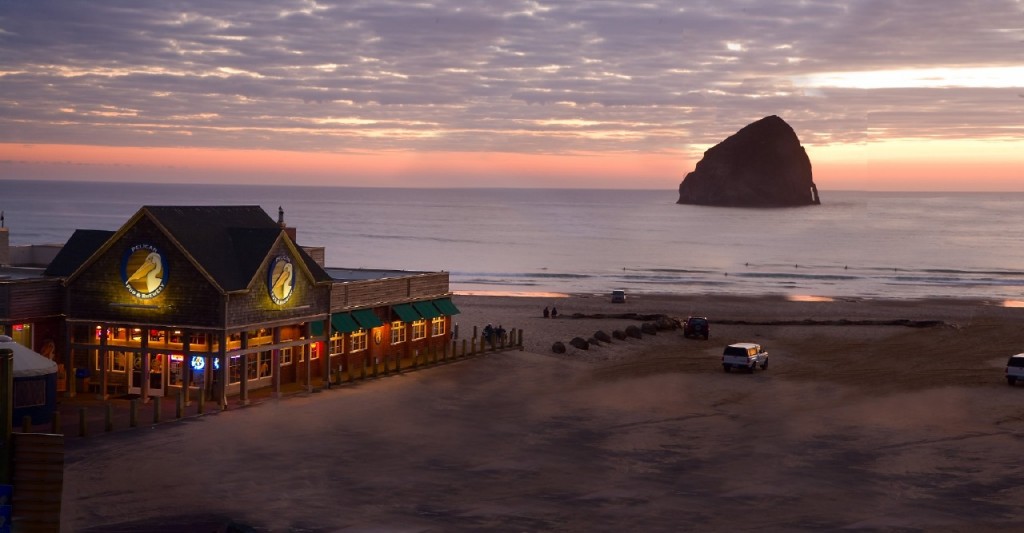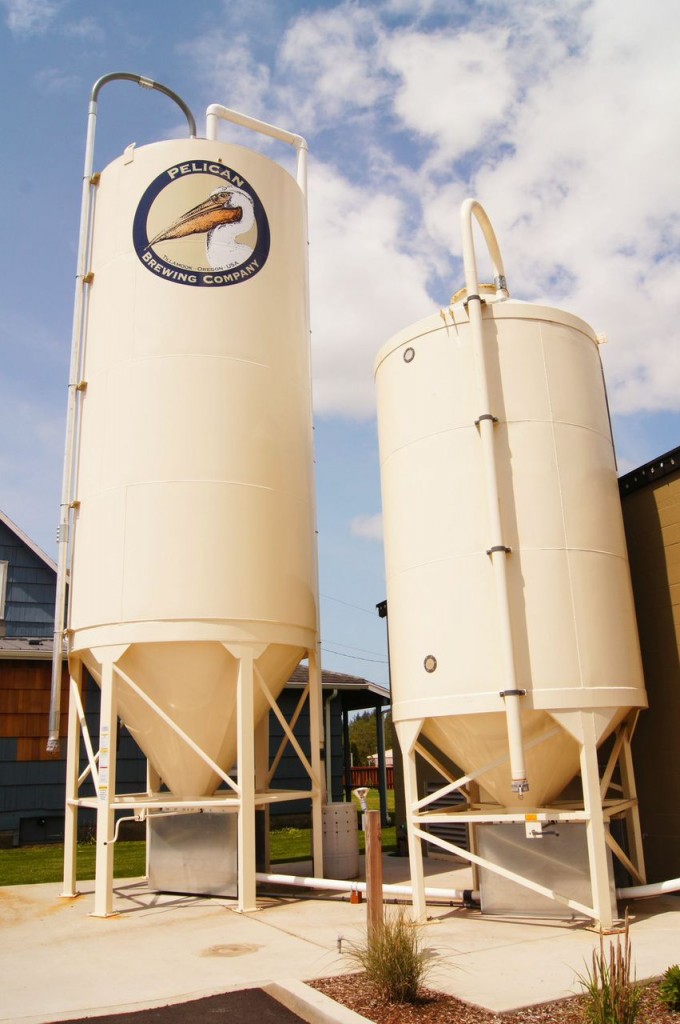There’s a difference between being coastal and being on the coast.

In a state that needs no help selling itself as a craft beer destination, Pelican’s immaculate location has for years given the company a leg to stand on that was uniquely its own. And since being founded in 1996, that leg kept the company up just fine. To newly-hired CEO Jim Prinzing’s knowledge, one would need to make a trip to Vietnam to find a similarly situated brewery.
But things are changing, as evidenced by Pelican’s recent facility expansion and hiring spree — it’s brought on 40 new employees, including Prinzing himself. For his part, Prinzing says there has been a significant “shift in thinking” at the company. No longer content to sell primarily traditional-style beers in a very limited area, Pelican is expanding its creative horizons and exploring new market opportunities for the very first time.
It’s the next flap of the wings for a brand that is gradually taking flight. Pelican only started packaging beer for availability off-premise in Pacific City three years ago, and even then, only in small pockets in its home state. The effort to grow beyond Oregon’s borders now is being spearheaded by added capacity at its year-old facility in Tillamook, about half an hour north of its ocean-front home. The brewery is currently on pace to sell around 9,000 barrels this year (up from about 3,800 in 2013), with plans to install new tanks this November to “probably double capacity again in 2015,” according to Prinzing. Additionally, Pelican has acquired a plot of land adjacent to its new facility for further growth, and is eyeing even more land to potentially build a packaging hall at some point four or five years from now.
It’s an ambitious business plan that calls for the one-time tourist destination to take its show on the road. But that presents it’s own problem: as the company moves into new markets — it has made recent forays into Washington, Idaho, and Utah — it has tried to sell itself as an iconic brand, built on a proud tradition. But that doesn’t mean it’s a well-known tradition.
“As long as the brand has been around, really outside of the beer aficionado ranks, there’s not a lot of brand recognition,” Prinzing said.
To create new recognition, the company isn’t making over its entire brand or anything (though Prinzing describes a subtle packaging “evolution” that will help the Pelican logo pop in new markets). Rather, one of the company’s major points of emphasis has been to focus on lobbying “a ton of support” behind its sales force in new markets.

Aside from the addition of Lishka, who has stints at MillerCoors, Columbia Distributing, and Craft Brew Alliance under his belt, the company has made 40 full-time hires since launching its new facility.
Still, it can be hard to sell the beach — which has been Pelican’s big hook — when you’re not actually there.
“When you’re not sitting on the beach, who cares?” said Danny Moloney, beer brand manager for Craig Stein Beverage in Sun Valley Idaho, Pelican’s distributor in the state. “When you’re drinking their beer, you’re really just caring about their beer, the packaging, their marketing. It’s a tough sell to say, ‘Wow, this is from a great place.’ It’s like, ‘Well, that’s great. How’s the beer?’”
To that end, the company brought four people from its sales team of six into the market when it launched in September.
“They really flooded the market, did a bunch of ride alongs, a bunch of promos, really tried to get into the cars with the sales people, get on the street with the customers,” added Moloney. “So yeah, they brought the team out, which just — hearing how many people they brought out really surprised me because I do know the size of their brewery.”
But there’s more change at the company than what’s happening on the business side of things, as the brewery is expanding its production portfolio as well.
With most of its flagship production moved over to its new Tillamook facility, its Pacific City location has been converted to focus primarily on its growing barrel-aged program, small-batch, experimental, and one-off brands. It’s a new twist for a company that has buttered its bread primarily with more mainstream recipes for years, said Prinzing.
“We’re in the midst of determining what the strategy is going to be, but our hope is to do a minimum of 26 one-off releases through the year,” he said. “That would be anything from the barrel releases to some potential new seasonal releases, really utilizing that facility.”
